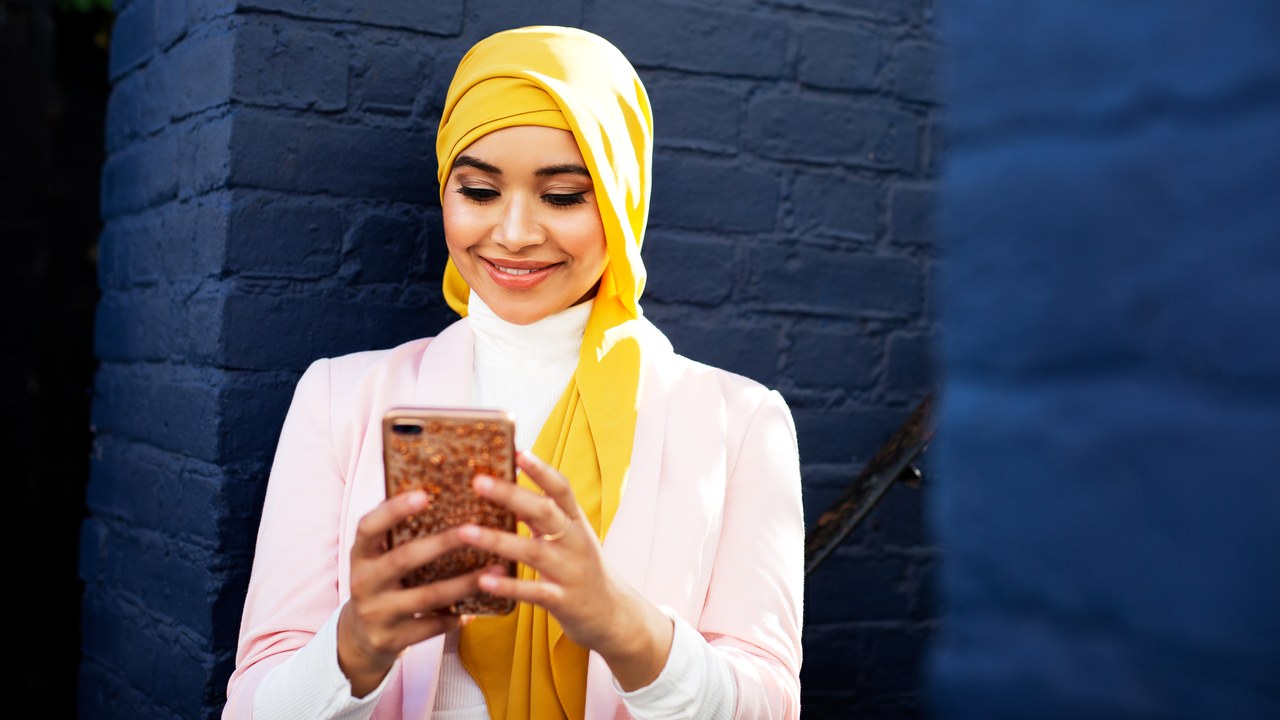What It’s Like to Date While Wearing a Hijab

The hijab is a loaded piece of cloth. Sumeya, 20, can’t remember the first time she wore one—as it has for many other Muslim women, it seems it’s always been a part of her routine, symbolizing her devotion to her religion. “My understanding of the hijab definitely changed as I got older,” she says, “but it’s something that I’ve grown accustomed to, and I try to wear it as often as I can.”
For Westerners the hijab is much more controversial, and it’s often viewed as a symbol of Muslim women’s sexual repression. But for the women who choose to wear it, the truth is far more complex.
A Complicated Relationship
The word hijab literally translates as “cover” in Arabic, but it means more than just a headscarf. More broadly, hijab refers to a set of codes that regulate modesty—prohibiting sex before marriage, encouraging conservative dress—for those who practice Islam.
It’s no secret that the garment has been saddled with a slew of stereotypes about the people who wear it; hijabi women are often seen as brainwashed, repressed, or worse, and they are are seldom portrayed as people who simply want to express their faith. The inaccuracies are frustrating and can make things complicated—especially when it comes to dating.
“Wearing the hijab can make dating harder because people will make assumptions about your sexual experience, what sort of relationship you’re looking for, and even what type of person you are,” says Edil, 19. “I think people do see me differently when I wear it, but not in a completely negative way.”
In the most traditional forms of Islam, women are forbidden from having any sort of sexual relations until they are married. Many Muslim women don’t follow these strict guidelines, but the precedent still shapes the way many, even in the West, feel about sex and relationships. “I was raised in a conservative Muslim family—my siblings and I were always taught not to have sex before marriage. I believe that very strongly,” says Miriam, 27. “I’ve obviously been tempted, but even if I’m attracted to a guy, it’s just not going to happen.”
That doesn’t mean she hasn’t dated. “I was actually engaged to a man who had issues with the way I wore the hijab and was very controlling, so I ended it,” Miriam says. “Women’s bodies are always controlled by men. But the man I am seeing right now is very accepting of my hijab, and things are going very well.”
This is one of the biggest misconceptions about the hijab and women who wear it: While many, like Miriam, do choose to abstain from sex, it doesn’t mean they aren’t exploring their sexuality. Or dating. Or falling in love.
“The hijab forces a more serious take on relationships and a preservation of intimacy,” says Suha, 36. “You kind of weed out the nonsense. It deters men whose intention is to play around. It also allows a deeper connection to develop between potential mates without the ramifications of physical sex.”
But the negative stereotypes about the hijab and sex aren’t completely unfounded—just as there are many Muslim women who feel the hijab helps them explore romance and sexuality, there are many who feel it puts them in a box.
Amani, 19, knew from a young age that she was interested in women. She also knew that her queer identity was something she shouldn’t talk about in her conservative Muslim family. “I started wearing the hijab at a pretty young age, around middle school,” she says. “As I got older and realized I was queer, it became more of a religious performance and I felt like a fraud.” Amani decided to stop wearing the hijab in college. “For a long time I denied a large part of myself because I felt marked with a religious piety that I didn’t necessarily feel,” she says. “I felt rejected and pushed away from my own culture. Eventually I realized it was not sparking any type of joy in my life, which is why I no longer wear it.”
The Hijab, Hypersexualized
Ironically, the hijab—meant to protect Muslim women from the eyes of men, and the complications of sex—is often fetishized. “Hijab is supposed to be this entity that somehow desexualizes you, but I found that in a lot of ways it hypersexualizes me,” Amani says. “I have really vivid memories of weird creepy men trying to hit on me when I wore it and trying to get me to take it off. I think they see it as some sort of mission—they want to know what’s underneath.”
